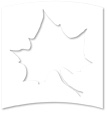Glossary
Assessment has a language all its own that can vary depending on the user. Please refer to this guide for clarification on terms. Let us know if there are any terms we should add.
Artifact: The item(s) produced as a result of the learning activity that serves as the direct evidence from which student leraning is measured. It may be stored for future use.
Assessment: The systematic collection and analysis of evidence of achievement related to specific outcomes, and the interpretation, sharing, and use of findings (adpated from Suski, L. (2009). Assessing student learning: A common sense guide. San Francisco, CA: Jossey-Bass. See pages 3-4).
Embedded Assessment: A means of gathering information about student learning that is built into and a natrual part of the teaching-learning process. Can assess individual student performance or aggregate the information to provide insight about the course or program; can be formative or summative, quantitative or qualitative. E.G., embedded learning outcomes and corresponding rubrics in Blackboard can be linked to a class and assignment for real-time assessment.
Benchmark: A performance standard against which assessment results are copmared in order to determine whether or not a program's ideas of "successful" student leraning were achieved. The HLC Assessment Academy uses the term "threshhold" instead of "benchmark."
Component: The HLC Assessment Academy used this term as a subset of student learning outcomes (SLOs) to define how programs will achieve its SLOs.
Continuous Improvement: Using the assessment process to identify strategies for improvement on a regular and continuous schedule.
Co-Curricular (ISU Working Definition): Units contributing to the university mission and/or academic curriculum by engaging students in intentionally structured and aligned learning experiences.
Co-Curricular (Higher Learning Commission Definition): Learning activities, programs, and experiences that reinforce the institution's mission and values and complement the formal curriculum.
Core Curriculum: The general education courses (or course options within curricular areas) that all students are required to take, and which satisfy the general education portion of graduation requirements (Foundational Studies at ISU).
Direct Assessment: Gathers evidence, based on student performance, which demonstrates the learning itself. Can be value-added, related to standards, qualitative or quantitative, embeded or not, and can use local or external criteria. Examples include class tests, research papers, student performances, etc.
Indirect Assessment: Measures that are based on perceptions, reflections, or secondary evidence and are used to make inferences about student learning. These measures do not demonstrate the learning itself but may provide insight to related outcomes. Examples include student surveys, job placements ,and employer surveys.
Formative Assessment: Assessment measures that are designed to provdie insight into ways to improve outcomes. These are usually low-stakes forms of feedback intended to foster improvement and development. This can include student and professor self-assessment.
Higher Learning Commission (HLC): The regional accrediting body that accredits Indiana State University. Acts as a proxy for the federal government to ensure insituttional compliance with federal law and continuous improvement. Criteria 3 and 4 of the five HLC Criteria for Accreditation - as well as various Assumed Practices - specifically address the assessment of student learning outcomes.
Standards: A set level of accomplishment all students are expected to meet or exceed. Standards do not imply complete standardization in a program because common minimum standards can be achieved by multiple pathways and demonstrated in multiple ways.
Learning Goals: Broad purposes of the curriculum or unit. It is the highest level of description for core learning areas and consists of learning outcomes and objectives.
Learning Objective: A specific statement that describes what the student is to learn, understand, or be able to do as a result of a lesson or series of lessons. (Sometimes used interchangeably with Learning Outcome - e.g., Foundational Studies uses "Learning Objective" for what students should achieve in each cateogry in the curriculum).
Learning Outcome: A statement that represents what students should achieve as a result of a lesson or series of lessons. Success may be influenced by a variety of factors, including prior knowledge, effort and attention, teaching methods, resources, time, etc.
Program Assessment: Assessment to determine the extent to which students in an academic or co-curricular program can demonstrate the learning outcomes for the program.
Program Review: A periodic comprehensive review of degree programs or co-curricular units that are not independently accredited by a disciplinary accrediting body.
Program Mission: Broad statement of what the degree or co-curricular program provdies to its stakeholders and the expected outcomes for students participating in the program.
Program Standards: The knowledge, skills, and values that students are expected to attain in a given program. Levels of attainment may be specified for purposes of evaluation and assessment.
Summative Assessment: Measures that are designed to evaluate outcomes at the end of a defined period by comparing it against a defined set of standards or benchmarks. Summative assessments may be used to evaluate student performance at the end of a term or at the conclusion of a program of study. They may be used to provide accountability measures to stakeholders.
Rubric: A guide for evaluating student work along certain dimensions. Within the context of program assessment, the dimensions can be specific skills or aspects of a learning outcome. For each dimension there are concrete descriptors for different levels of performance. It also articulates gradations of quality for each criterion.
Contact
Kelley Woods-Johnson, Ph.D. (she/her)
Director, Assessment & Program Effectiveness
Academic Affairs
Indiana State University
Rankin 243
(812) 237-7975
Kelley.Woods-Johnson@indstate.edu
Meet
I am happy to meet to discuss your assessment needs. Feel free to email, call, or set up a virtual or in-person appointment.
FCTE Office Hours Spring 2024
- Wednesdays, 8:30am-10:30am
Schedule is subject to change. Call or email ahead to verify if desired.

